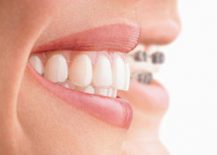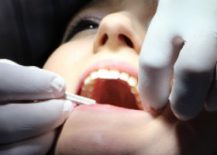Here at Smilessence, the oral health of our patients is of utmost importance. We offer advice and guidance on how to look after the teeth and gums as well as treatments that help to keep them healthy and to ensure that the smile looks great. Most people in the United Kingdom drink alcohol, but many do not realise that it can have an impact on their oral health. This is a guide from the dentist in Molesey on how drinking can compromise the health of teeth and gums, and what we recommend our patients do to minimise the risk.
Oral cancer
Oral cancer is an issue that most people do not like to think about, but it is important to be vigilant about the risks. Drinking alcohol, particularly to excess, can significantly increase a person’s risk of developing oral cancer. When this is combined with smoking, the risk grows even higher. It is a good idea for patients to monitor their oral health at home, keeping an eye out for any sores or lesions that remain persistent and that cause any pain or discomfort.
Seeing the dentist in Molesey for a check-up every six months can help with the detection of oral cancer. We can identify issues that the patient has not noticed but which may indicate the initial stages of the disease. When it is caught early, oral cancer is very treatable and the risk of it spreading to other parts of the body is significantly reduced.
Deterioration of the teeth
Drinking alcohol can cause tooth decay and erosion. Decay often occurs due to the sugar content of many alcoholic drinks. Many people are careful about their sugar intake and avoid eating too many sweets or having drinks like cola in order to protect their teeth from decay. However, they may not factor in the hidden sugar of their favourite glass of wine which can be just as damaging in terms of tooth decay as all those sugary treats.
Many alcoholic drinks are very acidic. Beverages such as wine, cider and alcopops can cause tooth erosion. This means that the enamel of the teeth becomes worn away. Tooth enamel is very important because it protects the teeth underneath, helping them to remain healthy and less susceptible to becoming damaged or decayed.
Increased risk of gum disease
There have been studies that link the consumption of alcohol, especially if it is outside of the recommended guidelines, to an increased risk of developing gum disease. Gum disease involves the gums becoming inflamed and sore and sometimes bleeding. It can cause bad breath and eventually lead to the person experiencing tooth loss.
Gum disease does not just affect a person’s oral health, it has an impact on the health of the whole body. People who suffer from the condition and where it is allowed to progress without treatment are much more likely to have issues with their heart and lungs, and to develop conditions like arthritis and dementia.
How to reduce risk
There are two main ways to reduce the risk of damage to the oral health from alcohol. One is to abstain completely. Secondly, if that is not possible, then we advise our patients to drink within safe limits. It is recommended that no one consumes more than 14 units per week, and that they should also have several alcohol-free days per week.














